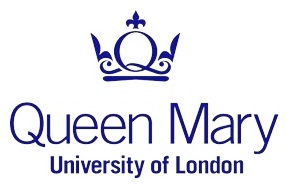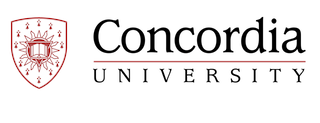D. Kollias, et. al.: "Advancements in Affective and Behavior Analysis: The 8th ABAW Workshop and Competition", 2025
@article{Kollias2025, author = "Dimitrios Kollias and Panagiotis Tzirakis and Alan S. Cowen and Stefanos Zafeiriou and Irene Kotsia and Eric Granger and Marco Pedersoli and Simon L. Bacon and Alice Baird and Chris Gagne and Chunchang Shao and Guanyu Hu and Soufiane Belharbi and Muhammad Haseeb Aslam", title = "{Advancements in Affective and Behavior Analysis: The 8th ABAW Workshop and Competition}", year = "2025", month = "3", url = "https://figshare.com/articles/preprint/CVPR_2025_ABAW8_baseline_paper_arxiv_pdf/28524563", doi = "10.6084/m9.figshare.28524563.v4"}
@article{kolliasadvancements, title={Advancements in Affective and Behavior Analysis: The 8th ABAW Workshop and Competition}, author={Kollias, Dimitrios and Tzirakis, Panagiotis and Cowen, Alan and Kotsia, Irene and Cogitat, UK and Granger, Eric and Pedersoli, Marco and Bacon, Simon and Baird, Alice and Shao, Chunchang and others}}
D. Kollias, et. al.: "DVD: A Comprehensive Dataset for Advancing Violence Detection in Real-World Scenarios", 2025
@misc{kollias2025dvd, author = {Kollias, Dimitrios and Senadeera, Damith and Zheng, Jianian and Yadav, Kaushal and Slabaugh, Greg and Awais, Muhammad and Yang, Xiaoyun}, title = {DVD: A Comprehensive Dataset for Advancing Violence Detection in Real-World Scenarios}, year = {2025}, howpublished = {\url{https://www.researchgate.net/publication/392397877_DVD_A_Comprehensive_Dataset_for_Advancing_Violence_D etection_in_Real-World_Scenarios}}, note = {DOI: \href{https://doi.org/10.13140/RG.2.2.31957.33762}{10.13140/RG.2.2.31957.33762}}}
D. Kollias, et. al.: "7th abaw competition: Multi-task learning and compound expression recognition", 2024
@article{kollias20247th,title={7th abaw competition: Multi-task learning and compound expression recognition},author={Kollias, Dimitrios and Zafeiriou, Stefanos and Kotsia, Irene and Dhall, Abhinav and Ghosh, Shreya and Shao, Chunchang and Hu, Guanyu},journal={arXiv preprint arXiv:2407.03835},year={2024}}
D. Kollias, et. al.: "The 6th Affective Behavior Analysis in-the-wild (ABAW) Competition". IEEE CVPR, 2024
@inproceedings{kollias20246th,title={The 6th affective behavior analysis in-the-wild (abaw) competition},author={Kollias, Dimitrios and Tzirakis, Panagiotis and Cowen, Alan and Zafeiriou, Stefanos and Kotsia, Irene and Baird, Alice and Gagne, Chris and Shao, Chunchang and Hu, Guanyu},booktitle={Proceedings of the IEEE/CVF Conference on Computer Vision and Pattern Recognition},pages={4587--4598},year={2024}}
D. Kollias, et. al.: "Distribution matching for multi-task learning of classification tasks: a large-scale study on faces & beyond". AAAI, 2024
@inproceedings{kollias2024distribution,title={Distribution matching for multi-task learning of classification tasks: a large-scale study on faces \& beyond},author={Kollias, Dimitrios and Sharmanska, Viktoriia and Zafeiriou, Stefanos},booktitle={Proceedings of the AAAI Conference on Artificial Intelligence},volume={38},number={3},pages={2813--2821},year={2024}}
D. Kollias, et. al.: "ABAW: Valence-Arousal Estimation, Expression Recognition, Action Unit Detection & Emotional Reaction Intensity Estimation Challenges". IEEE CVPR, 2023
@inproceedings{kollias2023abaw2, title={Abaw: Valence-arousal estimation, expression recognition, action unit detection \& emotional reaction intensity estimation challenges}, author={Kollias, Dimitrios and Tzirakis, Panagiotis and Baird, Alice and Cowen, Alan and Zafeiriou, Stefanos}, booktitle={Proceedings of the IEEE/CVF Conference on Computer Vision and Pattern Recognition}, pages={5888--5897}, year={2023}}
D. Kollias: "Multi-Label Compound Expression Recognition: C-EXPR Database & Network". IEEE CVPR, 2023
@inproceedings{kollias2023multi, title={Multi-Label Compound Expression Recognition: C-EXPR Database \& Network}, author={Kollias, Dimitrios}, booktitle={Proceedings of the IEEE/CVF Conference on Computer Vision and Pattern Recognition}, pages={5589--5598}, year={2023}}
D. Kollias: "ABAW: Learning from Synthetic Data & Multi-Task Learning Challenges". ECCV, 2022
@inproceedings{kollias2023abaw, title={ABAW: learning from synthetic data \& multi-task learning challenges}, author={Kollias, Dimitrios}, booktitle={European Conference on Computer Vision}, pages={157--172}, year={2023}, organization={Springer} }
D. Kollias: "ABAW: Valence-Arousal Estimation, Expression Recognition, Action Unit Detection & Multi-Task Learning Challenges". IEEE CVPR, 2022
@inproceedings{kollias2022abaw, title={Abaw: Valence-arousal estimation, expression recognition, action unit detection \& multi-task learning challenges}, author={Kollias, Dimitrios}, booktitle={Proceedings of the IEEE/CVF Conference on Computer Vision and Pattern Recognition}, pages={2328--2336}, year={2022} }
D. Kollias, et. al.: "Analysing Affective Behavior in the second ABAW2 Competition". ICCV, 2021
@inproceedings{kollias2021analysing, title={Analysing affective behavior in the second abaw2 competition}, author={Kollias, Dimitrios and Zafeiriou, Stefanos}, booktitle={Proceedings of the IEEE/CVF International Conference on Computer Vision}, pages={3652--3660}, year={2021}}
D. Kollias,S. Zafeiriou: "Affect Analysis in-the-wild: Valence-Arousal, Expressions, Action Units and a Unified Framework, 2021
@article{kollias2021affect, title={Affect Analysis in-the-wild: Valence-Arousal, Expressions, Action Units and a Unified Framework}, author={Kollias, Dimitrios and Zafeiriou, Stefanos}, journal={arXiv preprint arXiv:2103.15792}, year={2021}}
D. Kollias, et. al.: "Distribution Matching for Heterogeneous Multi-Task Learning: a Large-scale Face Study", 2021
@article{kollias2021distribution, title={Distribution Matching for Heterogeneous Multi-Task Learning: a Large-scale Face Study}, author={Kollias, Dimitrios and Sharmanska, Viktoriia and Zafeiriou, Stefanos}, journal={arXiv preprint arXiv:2105.03790}, year={2021} }
D. Kollias, et. al.: "Analysing Affective Behavior in the First ABAW 2020 Competition". IEEE FG, 2020
@inproceedings{kollias2020analysing, title={Analysing Affective Behavior in the First ABAW 2020 Competition}, author={Kollias, D and Schulc, A and Hajiyev, E and Zafeiriou, S}, booktitle={2020 15th IEEE International Conference on Automatic Face and Gesture Recognition (FG 2020)(FG)}, pages={794--800}}
D. Kollias, S. Zafeiriou: "Expression, Affect, Action Unit Recognition: Aff-Wild2, Multi-Task Learning and ArcFace". BMVC, 2019
@article{kollias2019expression, title={Expression, Affect, Action Unit Recognition: Aff-Wild2, Multi-Task Learning and ArcFace}, author={Kollias, Dimitrios and Zafeiriou, Stefanos}, journal={arXiv preprint arXiv:1910.04855}, year={2019}}
D. Kollias, et. al.: "Deep Affect Prediction in-the-wild: Aff-Wild Database and Challenge, Deep Architectures, and Beyond". International Journal of Computer Vision (IJCV), 2019
@article{kollias2019deep, title={Deep affect prediction in-the-wild: Aff-wild database and challenge, deep architectures, and beyond}, author={Kollias, Dimitrios and Tzirakis, Panagiotis and Nicolaou, Mihalis A and Papaioannou, Athanasios and Zhao, Guoying and Schuller, Bj{\"o}rn and Kotsia, Irene and Zafeiriou, Stefanos}, journal={International Journal of Computer Vision}, pages={1--23}, year={2019}, publisher={Springer} }
D. Kollias, et at.: "Face Behavior a la carte: Expressions, Affect and Action Units in a Single Network", 2019
@article{kollias2019face,title={Face Behavior a la carte: Expressions, Affect and Action Units in a Single Network}, author={Kollias, Dimitrios and Sharmanska, Viktoriia and Zafeiriou, Stefanos}, journal={arXiv preprint arXiv:1910.11111}, year={2019}}
S. Zafeiriou, et. al. "Aff-Wild: Valence and Arousal in-the-wild Challenge". IEEE CVPR, 2017
@inproceedings{zafeiriou2017aff, title={Aff-wild: Valence and arousal ‘in-the-wild’challenge}, author={Zafeiriou, Stefanos and Kollias, Dimitrios and Nicolaou, Mihalis A and Papaioannou, Athanasios and Zhao, Guoying and Kotsia, Irene}, booktitle={Computer Vision and Pattern Recognition Workshops (CVPRW), 2017 IEEE Conference on}, pages={1980--1987}, year={2017}, organization={IEEE} }









